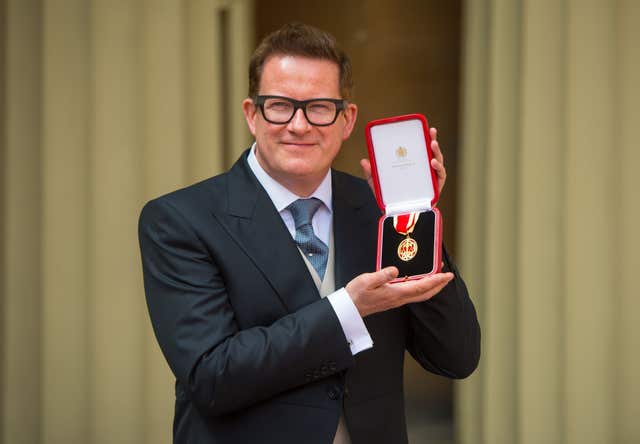Many theatres will not be able to open with social distancing – advisory body
The Theatres Trust said it will not be financially viable to stage shows without larger audiences.

The majority of theatres will not be able to reopen while social distancing is still in place, according to the head of the national advisory public body for theatre.
Indoor performances with socially distanced live audiences will be allowed, subject to the success of pilots, from August 1.
Jon Morgan, director of Theatres Trust, said the move was “welcome” and a “step in the right direction” but warned the margins are too small for it to be financially viable for many theatres to stage a show to such small audiences.
He told the PA news agency: “We are aware that The Mousetrap in the West End are planning socially distanced performances and the immersive Great Gatsby, they have plans for socially distanced performances, but it’s a long way short of obviously what we really need.
“Even the producers of The Mousetrap say this is a short-term measure as a way of starting to encourage audiences to think about going back to theatre but it wouldn’t be viable for them to do that for a very long time and that’s the key issue.
“With social distancing even at one metre, theatres at most would operate at about 40% capacity and most need to operate at about 70% in order for it to work out.”
Morgan pointed out that cinemas can operate with a much lower capacity than theatres because their overheads are much lower.
He predicted that the majority of theatres still will not be able to open while social distancing in still in place.
He added: “What many theatres will do, if they can, is reopen bits of their building, some of them already are, and if they want to they can put on workshops and community groups and things like that.
“Quite apart from the show on stage, they are community and cultural hubs and that bit of their activity they can reintroduce with the right safety measures.
“Our theatres are often the heart of our towns and cities and they are an important gathering space for people so it’s good they can do that, it just won’t be economic to put on plays in the normal way.”
Catherine Mallyon, executive director of the Royal Shakespeare Company, and Gregory Doran, its artistic director, echoed this, saying: “The requirement for social distancing of audiences, as well as of performers, means that we must wait until we reach Stage Five to plan the reopening of theatres for our full-scale indoor productions.
“In turn, we await details of the Government support package to be able to ensure that it is financially viable for us to reopen.”
Choreographer Sir Matthew Bourne has said the Government announcement offers “false hope”, while the union Bectu said venues will not be ready to reopen in a fortnight.
Sir Matthew wrote on Twitter: “Why make these announcements when they (the Government) know that the vast majority of theatre, dance and music is not financially viable under ‘Covid secure’ conditions?… False hope.”
But composer Iain Farrington, whose work kicks off this year’s Proms on Friday night, told the PA news agency: “It’s what we’ve all been wanting to hear for a long time.
“There is obviously a lot of detail to unpick, because how many people can be in a space, how much social distancing is required?”
But the pianist, who has created a “mash-up” of Beethoven’s nine symphonies for the start of this year’s Proms, which will debut on BBC Radio 3, warned that the announcement would not make large productions affordable.
“Our funding models are such (in the UK) that you need something like 75% to 80% full houses before you can break even,” he said.
“And if you can only run… at 50%, you’ll definitely make a loss on anything large-scale.

“But what will be great is just to be able to do smaller-scale things – string quartets, piano recitals, song recitals, small theatre pieces for a handful of actors, that kind of thing would be wonderful.
“And we’ve got to start somewhere.”
Head of Bectu Philippa Childs called the move a “significant development for the industry”.
“However, we know that theatres and venues will not be open in two weeks’ time,” she said. “Theatres will have to bring back productions, sell tickets, conduct rehearsals and prepare for how they will operate in a Covid-secure way before they can open up again.
“Socially distanced audiences will not provide the revenue for these businesses to be fully viable again without Government support, and it’s not clear how confident people will be about returning to theatres.”
The arts recently welcomed a £1.57 billion support package to “protect” the future of Britain’s theatres, museums, galleries, independent cinemas, heritage sites and music venues.
Childs said: “The industry still needs to know which organisations will be getting the money, how much they will get, and will it be in the form of a loan or a grant?
“This information is crucial to help save the livelihoods of those working in the sector and to halt redundancy consultations.”





